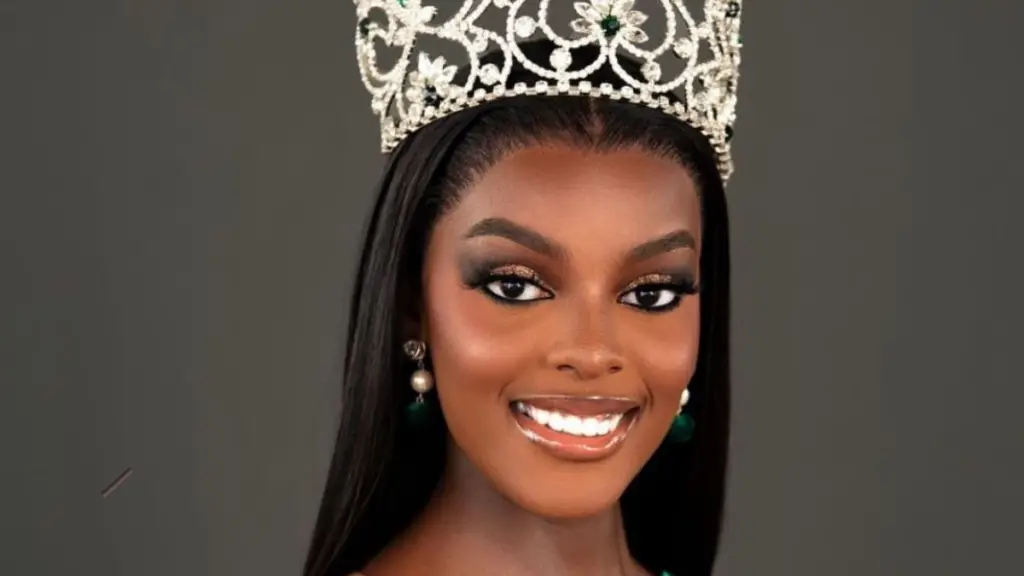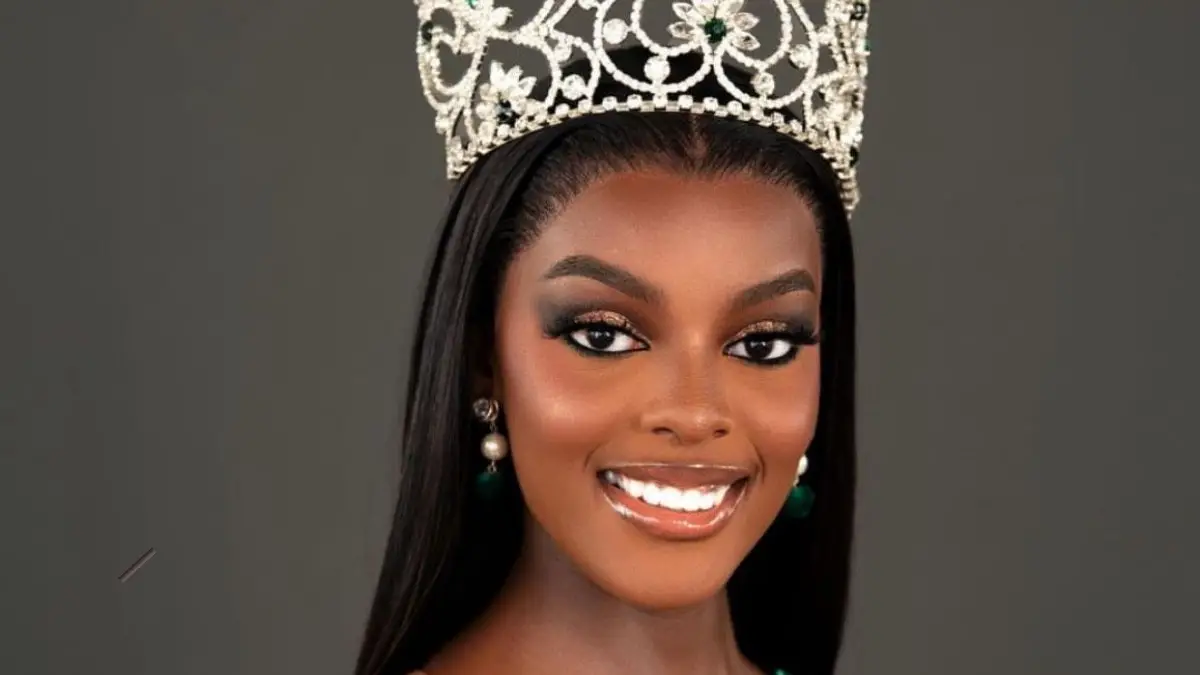When Chidimma Adetshina was crowned first runner-up at Miss Universe 2024, her triumph transcended the glittering stage. This monumental achievement reminded Nigerians of Agbani Darego’s historic Miss World win in 2001 and reignited discussions on how beauty pageants can serve as platforms for addressing societal issues.
Chidimma’s success symbolizes more than beauty; it embodies potential—potential for change, progress, and empowerment. Her journey is not just a celebration of physical allure; it opens the door to a broader conversation about the evolving role of pageantry in championing social causes. In a society grappling with issues such as gender inequality, mental health stigma, and youth disempowerment, Chidimma’s win provides a rallying point for meaningful change.

The Beauty Queen Behind the Crown
Chidimma Adetshina, a 23-year-old law student and model, has become a global icon following her first runner-up finish at the Miss Universe 2024 pageant held in Mexico. In addition to this achievement, she earned the title of Miss Universe Africa and Oceania, placing her as a continent representative.
Her journey to this stage was anything but smooth. Born in Soweto, South Africa, to a Nigerian father and a Mozambican mother, Chidimma faced immense challenges. Her withdrawal from the Miss South Africa pageant amid allegations of identity fraud and xenophobic backlash cast a shadow over her earlier efforts. However, she overcame these hurdles with unwavering resilience, earning recognition as a symbol of perseverance and determination.
Chidimma’s statements during the competition reflected her deep gratitude toward Nigeria. She credited the nation with giving her “a second chance at life, ” underscoring the strength of communal support and cultural pride. Through her journey, she highlighted themes of identity, belonging, and empowerment, resonating with countless Africans who see themselves in her story.
Beauty Pageants Through a Sociological Lens
Beauty pageants, often dismissed as superficial, are powerful platforms for advocacy and leadership. Historically, they have served as spaces where intelligence, advocacy, and cultural pride converge with physical beauty.
For Nigeria, Chidimma’s win rekindles memories of Agbani Darego’s groundbreaking Miss World 2001 victory. Which proved that African beauty and intelligence could stand tall on a global stage. Darego’s win symbolized excellence and diversity, challenging Eurocentric beauty standards and inspiring a generation.
Chidimma’s achievement carries similar potential, reminding us that beauty queens are uniquely positioned to reshape societal narratives. Internationally, figures like Pia Wurtzbach (Miss Universe 2015), who championed HIV awareness, and Priyanka Chopra (Miss World 2000), a fervent advocate for education, have proven that pageantry can drive meaningful change.
By following in their footsteps, Chidimma is poised to inspire Nigeria’s youth to address critical issues, such as mental health awareness, unemployment, and systemic corruption.
A Platform for Advocacy
One of the most pressing issues Chidimma can tackle is mental health, a topic still surrounded by stigma in Nigeria. Statistics indicate that approximately 25% of Nigerians experience mental health challenges, yet public awareness and access to resources remain woefully inadequate.
As a prominent public figure, Chidimma has the opportunity to normalize conversations about mental health and advocate for systemic reforms. By partnering with organizations dedicated to mental wellness, she can help amplify the voices of those often marginalized in these discussions, particularly young people.
In addition to mental health, education is another area where Chidimma’s influence could make a significant impact. With millions of Nigerian children out of school due to poverty and infrastructural barriers, her advocacy for inclusive education is timely. She could champion initiatives that promote tech-driven solutions to bridge educational gaps, particularly between urban and rural communities.
Through her platform, Chidimma could also address gender inequality by promoting STEM (Science, Technology, Engineering, and Mathematics) opportunities for young girls. Empowering girls through education would not only improve their futures but also contribute to Nigeria’s socio-economic development.
Inspiring a Generation
In today’s digital era, social media provides a powerful tool for change. Chidimma’s story of resilience and triumph positions her to lead digital movements addressing key societal issues. By sharing her personal experiences, she can encourage young Nigerians to take active roles in civic engagement, holding leaders accountable, and developing grassroots solutions.
Unemployment and corruption are two critical challenges stifling Nigerian youth. Chidimma can use her platform to connect young people with skills training and entrepreneurial opportunities, fostering self-reliance and innovation. Her influence can catalyze a generation eager to redefine Nigeria’s future.
Elevating Nigeria’s Global Image
Beyond domestic advocacy, Chidimma’s victory holds significant implications for Nigeria’s global image. As a cultural ambassador, she challenges stereotypes about Nigerian women, portraying them as empowered, intelligent, and globally competitive.
Her role as Miss Universe Africa and Oceania underscores Africa’s potential on the global stage, highlighting its diversity, talent, and resilience. By fostering cross-cultural collaborations, Chidimma can promote Nigeria as a nation of innovation, creativity, and leadership, shifting narratives often dominated by negative stereotypes.
Conclusion: Beauty as a Force for Change
Chidimma Adetshina’s Miss Universe 2024 triumph is more than a personal milestone; it is a testament to the transformative power of representation and advocacy. By focusing on critical issues such as mental health, education, and youth empowerment, she has the potential to redefine the purpose of beauty pageants.
Building on the legacy of trailblazers like Agbani Darego, Chidimma can inspire a new generation to envision a brighter future for Nigeria. Her journey shows that beauty when paired with purpose and resilience, can indeed catalyze societal progress.
In a world often divided by inequality and prejudice, Chidimma’s story reminds us that representation matters—and that true beauty lies in the ability to uplift and empower others.







